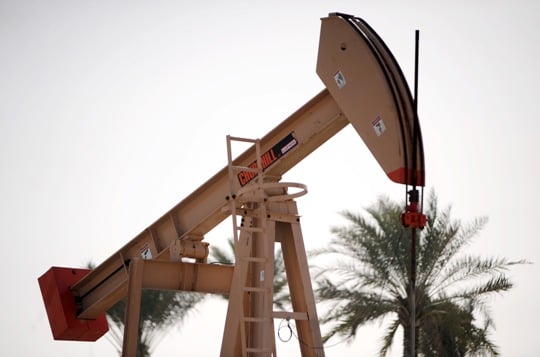Goldman Sachs and Morgan Stanley increased their forecasts for crude-oil prices by more than 20%, signaling a bullish outlook for commodities.
Goldman Sachs Group Inc. and Morgan Stanley increased their forecasts for crude-oil prices by more than 20%, signaling a bullish outlook for commodities.
Goldman, which correctly advised investors to sell oil and copper last month before a price slump, boosted its 12-month prediction for Brent crude to $130 a barrel from $107, analysts led by Jeffrey Currie said today in a report. Morgan Stanley raised its estimate by 20% to an average $120 this year and by 24% to $130 in 2012.
While Goldman and Morgan Stanley join JPMorgan Chase & Co. in saying price declines may present a buying opportunity, interest-rate increases and the European debt crisis have raised concerns that global growth may slow. China, the world's biggest consumer of everything from energy to copper and soybeans, has increased borrowing costs four times since mid-October to cool the fastest inflation since 2008.
“Economic growth will likely be sufficient to tighten key supply-constrained markets in the second half, leading to higher prices from current levels,” the Goldman analysts said. They also advised buying copper and zinc.
Brent advanced as much as 2.3% to $112.65 on ICE Futures Europe Exchange. Copper for delivery in three months climbed 0.8% to settle at $8,861 a metric ton on the London Metal Exchange.
Commodities Decline
The Standard & Poor's GSCI index of 24 raw materials dropped about 10 percent through yesterday since New York-based Goldman told investors on April 11 to sell a basket of commodities including oil, copper and cotton. The gauge rose 1.2 percent today.
“We are substantially more confident when the market is focused on demand growth relative to forward supply constraints as opposed to near-term transient supply shocks,” Currie said today in a telephone interview in London.
Brent jumped 31% this year through April 11 amid concern that supplies from the Middle East would be disrupted as protests spread from Tunisia and Egypt. Rising oil prices may be “sowing the seeds of future demand destruction,”, the Paris- based International Energy Agency said on April 12.
Prices of metals and energy dropped “more in line with near-term fundamentals,” Goldman said. A sustained loss of Libyan crude production because of the conflict there and disappointing output from non-OPEC nations will tighten the oil market to critical levels in early 2012, the report said.
Gasoline Costs
A pullback in U.S. gasoline prices “makes us much more comfortable about demand as we go into the summer driving season that kicks off with the Memorial Day this weekend,” Currie said in the interview.
The Organization of Petroleum Exporting Countries will “very likely” raise production to make up for an estimated 1.5 million barrels a day shut in by Libya's civil unrest, Morgan Stanley analysts led by New York-based Hussein Allidina and Chris Corda said today. The group has an estimated 2 million barrels a day that can be brought to the market quickly, the U.S. bank said.
“We see flat prices moving higher as spare capacity continues its fall to untenable levels,” the Morgan Stanley analysts said.
Sovereign debt in Europe, the contraction in Japan's economy and the end of the second round of quantitative easing in the U.S. are among “potential triggers” for a loss of confidence that pose a risk to oil, Goldman said.
Net Longs Drop
Money managers reduced their net-long positions in U.S. commodity futures and options by 11% in the week ended May 17 to the lowest since July, according to data compiled by Bloomberg. They also reduced bullish bets on oil to a three- month low.
Yesterday, the MSCI All-Country World Index dropped 1.8% to the lowest in two months on signs that Europe's credit crisis had deteriorated as costs to protect Greek debt from default surged to a record. Global manufacturing measured by a JPMorgan index slowed for two consecutive months and stood at 55 in April. A reading of 50 and above suggests expansion.
Oil and gold will lead a rally in raw materials as production fails to keep pace with demand, Ray Eyles, the chief executive officer of JPMorgan's Asia commodity business, said in an interview last week. Oil supplies will trail consumption in the second half as OPEC and other producers won't increase output fast enough, the bank said in a report on May 6.
Copper has declined 13% from a record $10,190 a ton on Feb. 15. Goldman analysts recommended buying futures for June 2012 delivery.
The bank also favors zinc for delivery in December 2012, forecasting demand to outpace supply next year. The metal, used in production of galvanized steel, has dropped 11% this year.
“Although we do not see the zinc balance as tight as copper next year, given how low current prices are relative to industry economics, we believe that zinc price risk is substantially skewed to the upside,” according to the report.
--Bloomberg News--







